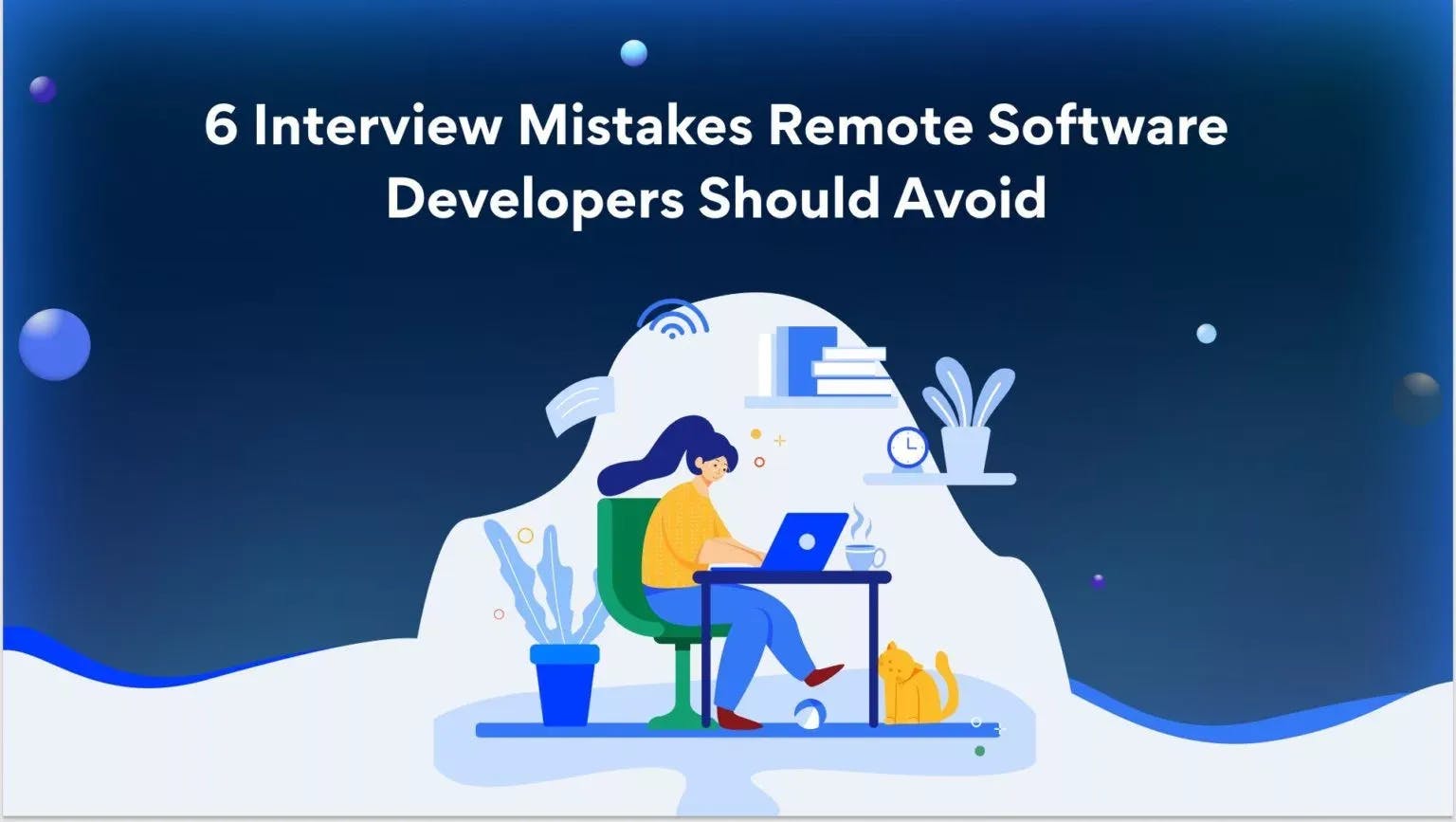Remote DevSecOps engineer jobs
We, at Turing, are looking for DevSecOps engineers who will be responsible for software development, recognizing the security threats, and configuring the network infrastructure. Apply now and be a part of the top Silicon Valley companies to accelerate your career growth.
Find remote software jobs with hundreds of Turing clients
Job description
Job responsibilities
- Implement DevSecOps within the organization gives security to the applications
- Ensure security in the development activities
- Implement risk management techniques and threat modeling
- Analyze cyber threats and present necessary countermeasures
- Collaborate with internal teams to produce the best security solutions
Minimum requirements
- Bachelor’s/Master’s degree in degree in computer science, cybersecurity, engineering, or equivalent degree
- 3+ years of experience as a DevSecOps engineer (rare exceptions for highly skilled candidates)
- Proficiency in back-end technologies such as Ruby, Perl, Java, Python and PHP
- Expertise in using DevOps tools like GitHub, dependency management, and CI/CD
- Prolific knowledge of DevOps culture and automation tools
- Fluent in both spoken and written English communication
- Ability to work full-time (40 hours/week) with a 4 hour overlap with US time zone
Preferred skills
- Excellent analytical and interpersonal skills
- Certifications by Cisco, Microsoft, or any other organization is a plus
- Stay up-to-date on cybersecurity threats and follow the best practices
Interested in this job?
Apply to Turing today.
Why join Turing?
1Elite US Jobs
2Career Growth
3Developer success support
How to become a Turing developer?
Create your profile
Fill in your basic details - Name, location, skills, salary, & experience.
Take our tests and interviews
Solve questions and appear for technical interview.
Receive job offers
Get matched with the best US and Silicon Valley companies.
Start working on your dream job
Once you join Turing, you’ll never have to apply for another job.

How to become a DevSecOps engineer ?
The acronym "DevSecOps" stands for "development, security, and operations," and those in this role are in charge of combining these three principles to produce a more robust security system for their company.
Engineers that work in DevSecOps often test and monitor a company's system for flaws. Then, in partnership with programmers (commonly referred to as DevOps engineers), they will construct new programmes to fix vulnerabilities in the present security programme, add countermeasures to combat new attacks, or simply make the programme stronger and more effective.
DevSecOps engineer jobs require communicating the findings of their security tests — as well as the programmes they developed to respond to those results — to other members of the organisation. They are ultimately responsible for monitoring, programming, testing, and communication in order to keep the company's digital data safe.
What is the scope for DevSecOps engineer?
DevSecOps isn't just about installing a framework; it's about introducing a new developmental strategy to avoiding and mitigating threats/attacks throughout the whole enterprise. The procedure will take some time and may encounter various difficulties. Once the relocation is complete, putting security in place at each stage is extremely straightforward. Every security professional is encouraged to be proactive in the workplace as a result of the approach.
The job function of DevOps security professionals is in high demand. If you want to further your career in the security field, a DevSecOps engineer job is the right fit for you. Take some time to evaluate your talents, expertise, and knowledge before moving further.
What are the roles and responsibilities of a DevSecOps engineer?
A DevSecOps engineer's job is similar to that of many other IT security professionals. To identify and evaluate risks, both employ a range of best practice tools and approaches including cybersecurity software, threat modelling, and risk assessments. However, as compared to traditional IT security functions, there are certain major changes in keeping with DevOps approaches.
Security isn't an afterthought on DevOps projects; it's incorporated into the programme from the start, employing secure code. Rather than scanning after the programme has been produced, it is attacked during development to uncover flaws. Because DevOps emphasises collaboration, DevSecOps roles collaborate with DevOps engineers to ensure that security vulnerabilities are identified and addressed throughout development. Automation tools for detecting vulnerabilities are crucial, thus DevSecOps must have a thorough grasp of them.
DevSecOps job remote is to guarantee that a company's network and IT infrastructure are free of security flaws. They are in charge of development cycles in integration/continuous deployment mode and may perform a variety of tasks:
- Creating and deploying new development infrastructure and tools.
- Comprehending and discussing with developers the needs of stakeholders.
- Working on approaches to automate and optimize development and release processes.
- Testing and inspecting other people's code, as well as assessing the findings.
- Assuring safety and security of systems during cyber-threats.
- Identifying and developing software upgrades and "fixes" for technological problems.
- Working with engineers and software developers for ensuring development follows defined procedures to produce desired results.
- Project planning and participation in project management choices.
- Create tools to decrease the number of mistakes and enhance client experience.
- Create software that connects internal back-end systems.
- Analyze the source of production errors.
- Look into and fix technological issues.
- Create visualisation scripts to automate the process.
- Build troubleshooting and maintenance processes for the system.
How to become a DevSecOps engineer?
A DevSecOps engineer remote job may be intriguing if you enjoy coding and computers and want to work in the IT industry. After all, this job is fascinating, relevant to your hobbies, and financially rewarding.
But where do you look for work in this field?
Three things are required: education, certification, and experience.
- DevSecOps, like other cyber security positions, requires at least a bachelor's degree. Employers prefer individuals with a degree in a tech-related subject such as computer science, cyber security, or computer engineering because of the high level of knowledge and technical competence necessary for this role.
- A bachelor's degree is required for DevSecOps, as it is for other cyber security roles. Because of the high level of knowledge and technical skill required for this profession, employers prefer persons with a degree in a tech-related topic such as computer science, cyber security, or computer engineering.
- Finally, the majority of DevSecOps engineers do not go straight into this role – in fact, nearly none do! The field of cyber security is usually high-pressure and fast-paced, and understanding topics in the classroom isn't necessarily enough to ensure success on the job.
Interested in remote DevSecOps engineer jobs?
Become a Turing developer!
Skills required to become a DevSecOps engineer
DevSecOps engineer jobs require study of a range of skills in addition to the certifications given above to be successful in their profession. Some of the most crucial skills you'll need to master are listed here.
1. Programming and code writing
The "dev" portion of DevSecOps is an important aspect of an engineer's day-to-day job. When you discover a vulnerability in your company's security system, it is your job to repair it (together with your DevOps team) - even if it means developing the solution yourself. Remote jobs DevSecOps requires to be competent in code. DevSecOps engineers should be able to develop code in Ruby, Perl, Java, Python, and PHP, among other languages. It's also crucial to have a solid grasp of development tools like GitHub, dependency management, and continuous integration and delivery. In this job, you'll be dealing with code frequently, so the more you know, the better!
2. Risk assessment and threat modelling techniques
DevSecOps programmers build code to improve their company's current security initiatives, like we just discussed. But how can you tell whether a programme needs to be improved? By putting the system through frequent testing and examining its strengths and faults! If you want to work in cyber security in any capacity, you'll need to grasp risk assessment. Furthermore, all cyber security professionals (particularly DevSecOps jobs) should be familiar with threat modelling approaches. This implies you must be able to look at a security system and recognise not only the system's existing flaws, but also alternative ways it may be attacked in the future. To safeguard your system, you'll need to be aware of current cyber threats and responses.
3. Teamwork and strong communication skills
DevSecOps remote job also requires them to communicate effectively with both their peers and their bosses. Managers, board members, and other professionals may want to know how new security programmes are progressing, and you'll have to describe your job – without using technical language that might mislead your colleague. In order to provide the best possible security solutions for the firm, DevSecOps engineers must also be able to cooperate with their fellow programmers.
4. Other technical skills
DevSecOps engineer jobs require a diverse range of abilities. They'll require an IT security professional’s technical skill as well as understanding of the DevOps methodology. They'll also require a strong interest in cybersecurity and a thorough understanding of current risks and trends. The following are the most important abilities:
- Understanding of DevOps culture and concepts.
- Programming languages such as Ruby, Perl, Java, Python, and PHP are all useful.
- Strong communication and collaboration abilities.
- Understanding of threat modelling and risk assessment methods.
- Knowledge of the most recent cybersecurity dangers, best practices, and software.
- Puppet, Chef, ThreatModeler, Checkmarx, Immunio, and Aqua are some of the applications you should know about. They may also need to be familiar with Kubernetes, Docker, or Amazon Web Services.
These abilities can be learned on the job, either in a formal job or through an internship or work placement. Courses on DevOps ideas, programming languages, and automation technologies are also available. Of course, as many IT engineers do, you may educate yourself on such languages and technologies.
Interested in remote DevSecOps engineer jobs?
Become a Turing developer!
How to get remote DevSecOps engineer jobs?
Realizing that DevSecOps is as much a culture as it is a set of procedures is one of the first steps on the way to get a DevSecOps engineer job. It necessitates the drive to build security into every line of code you write, as well as the motivation to safeguard your company by actively looking for security flaws and vulnerabilities while you code and addressing them before they reach production. The majority of DevSecOps engineers take their job and their skill set extremely seriously.
Turing has the greatest remote DevSecOps engineer jobs that fit your DevSecOps engineer career goals. Working on difficult technological and business challenges with cutting-edge technology will help you grow quickly. Get full-time, long-term remote DevSecOps engineer job with greater income and career progression by joining a network of the world's greatest developers.
Why become a DevSecOps engineer at Turing?
Elite US jobs
Career growth
Exclusive developer community
Once you join Turing, you’ll never have to apply for another job
Work from the comfort of your home
Great compensation
How much does Turing pay their DevSecOps engineers?
Every DevSecOps engineer at Turing has the ability to determine their own rate. Turing, on the other hand, will propose a wage at which we are confident we can offer you a rewarding and long-term position. Our suggestions are based on our analysis of market circumstances and the demand we perceive from our clients.
Frequently Asked Questions
Latest posts from Turing
Leadership
Equal Opportunity Policy
Explore remote developer jobs
Based on your skills
- React/Node
- React.js
- Node.js
- AWS
- JavaScript
- Python
- Python/React
- Typescript
- Java
- PostgreSQL
- React Native
- PHP
- PHP/Laravel
- Golang
- Ruby on Rails
- Angular
- Android
- iOS
- AI/ML
- Angular/Node
- Laravel
- MySQL
- ASP .NET
Based on your role
- Full-stack
- Back-end
- Front-end
- DevOps
- Mobile
- Data Engineer
- Business Analyst
- Data Scientist
- ML Scientist
- ML Engineer
Based on your career trajectory
- Software Engineer
- Software Developer
- Senior Engineer
- Software Architect
- Senior Architect
- Tech Lead Manager
- VP of Software Engineering









